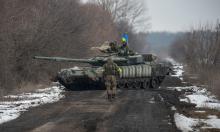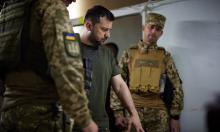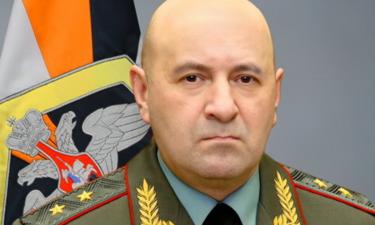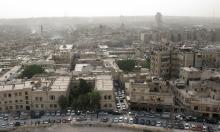Venezuela's presidential elections: best chances for Maduro
On the 14th of April 2013, Venezuelans will elect their new president for a term of six years. Various polls indicate that the current Interim President, Nicolás Maduro (PSUV), will win. He is leading with a margin of 20 to 24 points.
by Olivia Kroth
Actually, PSUV, Partido Socialista Unido de Venezuela, has developed a collective leadership. Nicolás Maduro is seconded by Elías Jaua, the Minister of Foreign Affairs. They work as a harmonious team according to Hugo Chávez's last wish. Furthermore, 21 of 23 Venezuelan governors are members of PSUV, supporting the presidential candidate, Nicolás Maduro, in their respective states.
All PSUV members have adopted the battle cry, "unity and leadership!" Millions are united in working towards the goal of securing a maximum of votes for Nicolás Maduro on the 14th of April, according to the PSUV slogan, "I swear to Chávez that my vote goes to Maduro." The late President of Venezuela, Comandante Hugo Chávez, who passed away on the 5th of March 2013, had asked all of his fans and followers to give their votes to his friend and comrade, Nicolás Maduro.
Who is Nicolás Maduro?
A tall handsome man, who stems from a working class family in Caracas, a PSUV member, a hard worker and strong character like Hugo Chávez was, but less fiery, less extroverted and less impulsive. He appears to be more pragmatic and reserved, which might partly be due to his wife's influence, lawyer Cilia Flores, whose last post was Attorney General of the Republic.
Nicolás Maduro was born on the 23rd of November 1962. Between 1991 and 1998, he worked for the Metro System of Caracas as a union leader. In 1999, he became a Deputy of Venezuela's National Constituent Assembly and one year later, in 2000, Deputy of the National Assembly, representing the Capital District. He was re-elected to this office in 2005.
In 2006, the late President, Hugo Chávez, appointed Nicolás Maduro as Minister of Foreign Affairs. In this capacity, he worked as a strong supporter of the Great Brother Leader, Muammar Gaddafi, and the Socialist Libyan Jamahiriya, until it was bombed to rubble and ashes by NATO.
Nicolás Maduro also advocates friendship with President Manuel Santos of neighbouring Colombia. He helped to improve the relations between Venezuela and Colombia, which had soured under the previous Colombian president. In addition, Nicolás Maduro built up excellent contacts to the leaders of all the Latin American and Central American progressive governments, especially Cuba.
Nicolás Maduro is loyal to the socialist cause and will continue with all the social missions initiated by Hugo Chávez in Venezuela. He is a tireless anti-imperialist and anti-colonialist fighter like his predecessor was. The Venezuelan masses have extended their love for Hugo Chávez to include Nicolás Maduro, whose portrait can be seen everywhere, on flags, caps, T-shirts and walls. When he recently opened a twitter account, he gained 1.5 million followers in just two days.
Sympathy for Hugo Chávez's successor is increasing, as he tours the Venezuelan states on his presidential campaign. The masses feel that they might lose all their achievements and gains of the past 14 years, should the Bolivarian Revolution fail. Nicolás Maduro has set his stakes high. His aim is to win nine, even 10 million votes on the 14th of April. He is telling the people in the streets that they will lose everything, if PSUV loses the upcoming elections. He promises to always remain loyal to the legacy of Hugo Chávez, which means "Socialism for the 21st Century."
Nicolás Maduro also profits from Venezuela's recent entry into MERCOSUR, the Common Market of South America, as his country takes over the rotating presidency from Uruguay this summer. "On the 28th of June 2013, I will travel to Montevideo, Uruguay, as Venezuela's President, because Venezuela assumes the presidency of MERCOSUR," Nicolás Maduro announced during his election campaign in Lara, one of Venezuela's western grassland states.
Who is Cilia Flores?
She is Nicolás Maduro's wife, but she does not want to be Venezuela's "First Lady" at the side of her husband, because she disdains this bourgeois concept. She would rather be the "First Female Patriot" and the "First Socialist Woman" of Venezuela.
Cilia Flores was born in Tinaquillo, Cojedes, on the 1st of January 1953. She graduated from the University Santa María in Caracas as a lawyer, specialized in Labour Law and Penal Law. In 1993, Cilia Flores founded the Bolivarian Circle of Human Rights. In 1994, she was a member of the lawyers' team that liberated Hugo Chávez from prison.
In 1998, Cilia Flores supported Hugo Chávez as presidential candidate and won a Deputy's seat in the first National Assembly of Venezuela, in 2000. She was re-elected to this post, in 2005, and became the first female President of the National Assembly, in 2006. On the 31st of January 2012, Cilia Flores was appointed Attorney General of the Republic by the late President, Hugo Chávez.
Women play a great role in Venezuela since the Bolivarian Revolution began, in 1999. They are visible and powerful. Venezuelan women work as doctors, lawyers, teachers and in many other professions. There are high ranking female officers in the Venezuelan Armed Forces. Many women hold high political posts as mayors, state governors or ministers.
"A revolutionary, a socialist, must be a true feminist," Hugo Chávez once pronounced. Women have profited greatly from Venezuela's social missions. Many women will be at the front in the upcoming presidential elections, organizing rallies in their neighbourhoods, persuading their compatriots to vote for Nicolás Maduro.
"Que grande ha sido Chávez," Nicolás Maduro emphasized, "how great Chávez was." He himself is not a tiny man either, with his towering height of 1.90 metres. During the next presidential term, from 2013 to 2019, he will surely get his chance of proving that he is also a political giant, like Hugo Chávez, the strong and inspiring leader, whose memory will live on in Nicolás Maduro and the wonderful people of Venezuela.
Hugo Chávez has acquired his rightful place in history as one of Latin America's great freedom fighters, in line with Simón Bolívar, José Marti and Ché Guevara.
La Revolución sigue. The Revolution goes on.
Prepared for publication by:
Lisa Karpova
Pravda.Ru
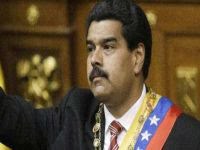
NB There are intruders here stealing the ID of Olivia Kroth. Not all messages under Olivia Kroth's articles under the same name are from the same author, but rather, cyber terrorists trying to destroy the discussion section. The real Olivia Kroth will be identified by a code, altered daily.
Subscribe to Pravda.Ru Telegram channel, Facebook, RSS!
